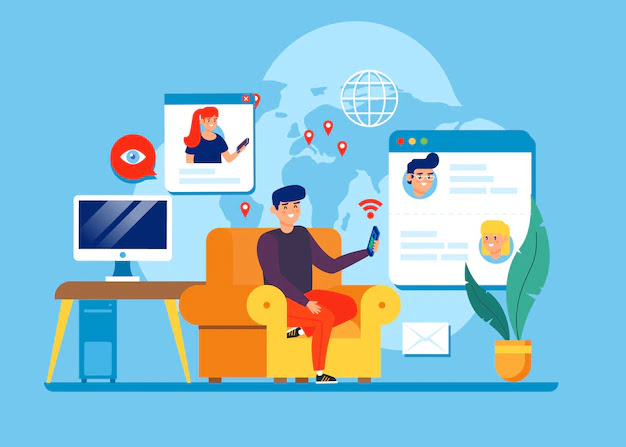Online Interaction
1. Embrace Authenticity:
One of the key aspects of online interaction is to be genuine and authentic. While it may be tempting to present an idealized version of ourselves, fostering real connections requires honesty and transparency. By sharing our true thoughts, feelings, and experiences, we create an environment that encourages others to do the same. Authenticity breeds trust, leading to deeper and more meaningful connections.
As we interact online, it's essential to adhere to proper digital etiquette. Treat others with respect, kindness, and empathy, just as you would in face-to-face interactions. Remember, the words we type carry weight and can have lasting effects. Avoid engaging in heated debates or spreading negativity. Instead, focus on constructive conversations that promote growth, learning, and understanding.
The internet offers an array of platforms for online interaction, each with its own unique dynamics and user base. It's crucial to choose platforms that align with your interests, values, and goals. Whether it's social media platforms, online communities, or professional networking sites, find spaces where you can engage with like-minded individuals and cultivate relationships based on shared interests.
Active listening plays a vital role in fostering meaningful connections online. When engaging in conversations, take the time to truly understand the perspectives of others. Ask questions, show genuine interest, and respond thoughtfully. By actively engaging with others, you demonstrate your willingness to connect on a deeper level, which often leads to more rewarding interactions.
Online communities can provide a sense of belonging and support. Seek out communities that align with your passions and interests. Engage with others who share your enthusiasm and offer valuable insights. Building a supportive network not only allows for personal growth but also provides a platform for collaboration, learning, and professional development.
While online interaction can be enriching, it's essential to prioritize your privacy and safety. Be cautious about sharing personal information and use privacy settings to control the visibility of your online presence. Avoid engaging with individuals who exhibit malicious or harmful behavior. Trust your instincts and report any concerns to the appropriate platform authorities.
Social media platforms have revolutionized online interaction but can also be a source of anxiety and comparison. Practice mindful social media use by curating your feed to include content that inspires, educates, and uplifts you. Set boundaries and take breaks from constant scrolling to maintain a healthy relationship with social media.
While online interaction offers immense opportunities, it's crucial not to overlook the importance of offline connections. Use online platforms as a means to nurture relationships, but also make an effort to meet people in person when possible. Attend networking events, conferences, or local meet-ups related to your interests to bridge the gap between the digital and physical world.
2. Practice Digital Etiquette:
3. Choose Your Platforms Wisely:
4. Actively Listen and Engage:
5. Build a Supportive Network:
6. Protect Your Privacy and Safety:
7. Mindful Social Media Use:
Read More: Social Skills
8. Offline Connections Matter:
Conclusion
FAQ
Ques 1: Why is online interaction important?
Ans: Online interaction is crucial as it connects people globally, enabling instant communication, knowledge sharing, and relationship building. It facilitates collaboration, supports learning, and fosters diverse perspectives, making it a vital tool for personal, social, and professional growth in our interconnected world.
Ques 2: What are the forms online interactions?
Ans: Online interactions take various forms, such as social media platforms, email, video calls, chat forums, and online gaming. These mediums enable real-time communication, content sharing, and networking, allowing individuals to connect, engage, and exchange information regardless of geographical barriers.
Ques 3: What is online interactions security?
Ans: Online interaction security refers to measures and practices that protect users from cyber threats and privacy breaches while engaging online. It involves using strong passwords, encryption, firewall protection, and being cautious about sharing personal information. These steps help safeguard data, prevent identity theft, and ensure a safer online experience.
Ques 4: What are the positive and negative effects of online interaction?
Ans: Positive effects of online interaction include global connectivity, knowledge sharing, and efficient communication. However, negative aspects can involve privacy concerns, cyberbullying, and reduced face-to-face interactions. Striking a balance between the benefits and potential drawbacks is essential for maximizing the positive impact of online interactions while minimizing their negative consequences.
Ans: Negative online interactions can harm mental health, causing stress, anxiety, or depression. Cyberbullying and harassment can erode self-esteem and lead to social isolation. Exposure to offensive content might desensitize individuals or create a hostile online environment. Overall, negative interactions can negatively impact emotional well-being and overall online experience.









Do Leave Your Comment